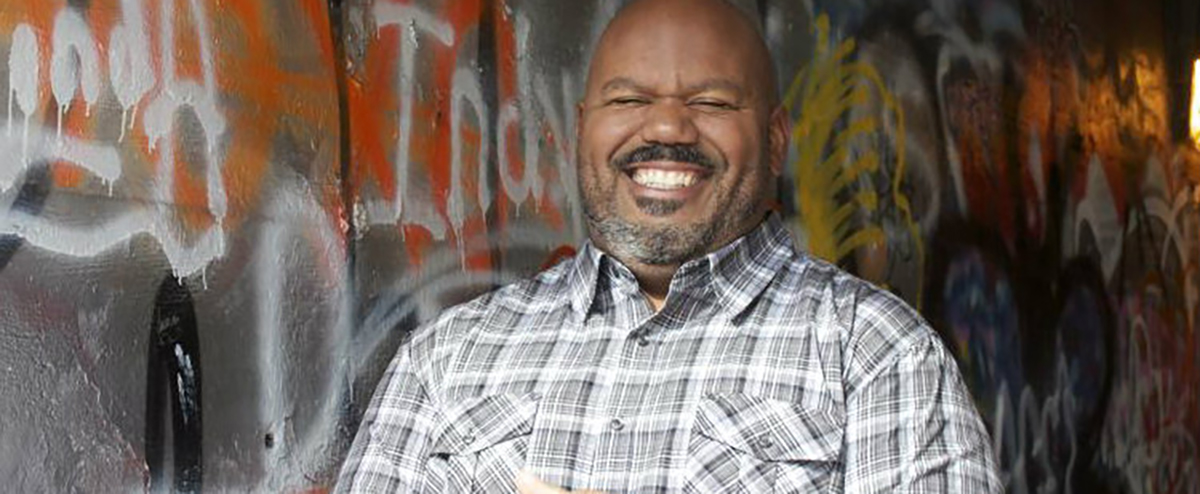Pastor James Roberson Talks with King’s Campus About “Living Above Division”
The King’s College welcomed Pastor James Roberson on campus for a talk on racial reconciliation entitled "Living Above Division."

On February 2, The King’s College welcomed Pastor James Roberson on campus for a talk on racial reconciliation entitled “Living Above Division.”
Roberson attended James Madison University in Harrisburg, Virginia, where he played football and graduated in 1999 with a degree in Speech Communications and a Theater minor. In college, he came to genuine Christian faith through Campus Crusade for Christ (the same organization that originally founded King’s in 1938). He earned his M.A. in Christian Leadership at Southeastern Baptist Theological Seminary in Wake Forest, North Carolina in 2011. He and his wife, Natarsha, along with their two daughters, Faith and Leah, moved to New York in 2012 in order to plant The Bridge Church in Brooklyn, where he serves as pastor.
Roberson addressed a large crowd of King’s faculty and students in the campus’s City Room. He explained that most people find it too hard or uncomfortable to discuss racial issues and instead settle for “racial cordialness”—merely being nice to one another instead of working through conflict and differences. Authenticity and real relationships ought to come before attempts to “diversify.” Roberson said, “Start living authentically with me, and in so doing we can begin to press into areas of differences.”
True racial reconciliation, Roberson said, only comes through living authentically within a community. He quoted Matthew 12:50, where Jesus says, “Whoever does the will of my Father in heaven is my brother and sister and mother.” The primary community that God has given to his people is that of other believers. The question Christians should be asking, said Roberson, is not first and foremost how to reach racial reconciliation, but rather asking if the will of God is one of the burning passions in their lives, and then partnering with others who share that vision in order to reach a true family dynamic.
Roberson went on to address how we should react to racially-charged social and political situations. The Christian’s first response, he said, should be to consider God’s opinion on the issue. Though life issues might seem to separate people of different races, Roberson emphasized that those dividing lines are worldly conventions, citing Ephesians 2:14, where Paul reprimands those who are still putting barriers between the Jews and Gentiles.
Roberson ended by discussing some of the prevalent issues in the news that tend to divide people, including the death of Eric Garner, the shooting of two policeman in Brooklyn, and the vast amounts of “keyboard courage” that those who post their unfiltered opinion about these issues on social media possess. In all of these areas, even political ones, Roberson said that believers are Christians before they are members of a particular political party, and that they should work consciously to build unity rather than separating themselves.
Roberson closed with a charge to those assembled, saying, “Many of you have been trained to be cordial . . . I challenge you to live authentically.”
Roberson followed his talk with a brief Q&A before students had to return to class, addressing topics such as what practical steps could lead to those necessary, difficult conversations, as well as how Muslims and Christians ought to interact. Roberson’s response to both questions were remarkably similar: pray, position yourself as a learner, and build commonality before working towards differences.




